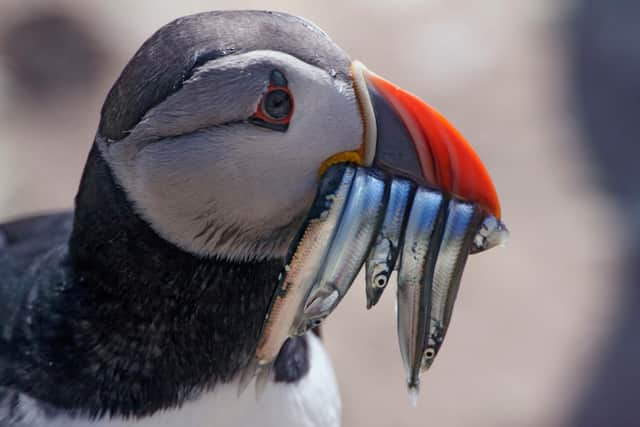Scottish puffins and hares among global wildlife in crisis
Bumblebees and bluebells across Scotland and the UK are also in danger.
Feeling the Heat, a study from international environmental campaign group WWF, has singled out 12 species from around the globe which are struggling for survival due to the impact of rising temperatures.
Advertisement
Hide AdAdvertisement
Hide AdThe report studies the effects on the environment if temperatures rise more than 1.5C above pre-industrial levels and outlines how the future of life on earth depends on humanity’s urgent response to tackle the crisis.


It highlights how warming is threatening the survival of countless wildlife species at home and abroad, with those in particular jeopardy including snow leopards, emperor penguins and coral reefs.
The report highlights how “extraordinary” and “unparalleled” ecological changes have already taken place within the space of a human lifetime, with global wildlife populations down by more than two thirds since 1970 and the past decade the hottest ever recorded.
It warns the current trajectory for warming will result in a world that is unsafe for people and nature, with every half-degree rise in temperature bringing additional threats.


The environmentalists are repeating calls for urgent action to halt the trend as the UK gets set to host the United Nations COP26 summit - which is being held in Glasgow in November and is widely considered to be the most important international climate meeting since the Paris Agreement was set out in 2015.
Sheila George, environment and food policy manager at WWF Scotland, said: “Scotland is rightly proud of its diverse and unique flora and fauna, but we need to wake up to the fact it is increasingly under threat from climate change.
“As this report shows, it’s not just snow leopards that are in danger, but our beloved Scottish species and habitats are too, with one in nine under threat of extinction.
“Even small increases in temperature threaten many of the plants and animals that not only make Scotland unique, but that we also depend on for food and pollination.”
Advertisement
Hide AdAdvertisement
Hide Ad

Scotland’s mountain hares, found in the Highlands, are the only true native hares in the UK.
They have evolved special camouflage techniques to help them escape predators, replacing their usual brown fur with a white coat in winter to help them hide in snowy landscapes.
However, snow cover is declining in the Highlands, leaving hares more exposed and vulnerable to attack.


Habitat change caused by rising temperatures is also pushing them to move to higher altitudes in smaller and more fragmented territories.
One of Scotland’s best-loved seabirds – the Atlantic puffin – is also struggling to survive as ocean temperatures continue to rise and volatile weather events impact feeding and breeding.
On top of that, over-fishing is severely reducing their food sources, while abandoned nets and other plastic pollution poses a major threat.
Ms George added: “Scotland must lead the charge by driving down emissions – for example in the way we heat our homes and produce food, and by restoring vital habitats like peatlands and woodlands that help us capture and store carbon.”
